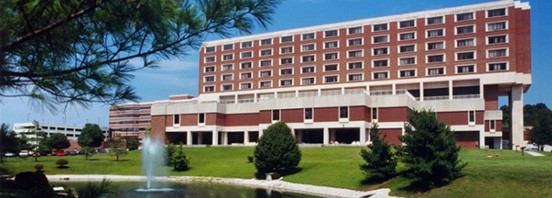
by Kimberly Goad
Women’s Health, June 2010
Side effects of cancer treatments can include early menopause, but there are new medical advances to help female cancer patients preserve their ability to have a baby. Why aren’t doctors talking about this with their patients before treating them?
For starters, we’re born with all the eggs we’ll ever have, and when we run out, that’s it: Menopause begins. Chemo can throw a woman into early menopause (a.k.a. premature ovarian failure) by affecting her ovaries’ ability to make the hormones necessary in order for her to get her period. Even if a woman gets her period again, she’ll often have “diminished ovarian reserve,” meaning her eggs were damaged or destroyed by treatment. Her ovaries are still functioning, but she may have difficulty conceiving, with or without fertility treatment— especially if she’s over age 35.
Oncologists are reluctant to postpone a patient’s cancer treatment for any reason. That is why ovarian freezing is so appealing. It does not delay cancer treatment at all but does preserve fertility.
In 2006, the American Society of Clinical Oncology (ASCO) issued guidelines saying that any oncologist with reproductive-age patients should discuss how treatment may affect their fertility. And yet according to a study last year from the Moffitt Cancer Center and Research Institute, only 46 percent of oncologist report referring patients for fertility preservation.
According to ASCO, recent surveys of cancer survivors of reproductive age show that at least half have no memory of a discussion of fertility with their doctors.

In 2007, the National Institutes of Health began financing the Oncofertility Consortium, and researchers there are studying methods to better preserve patients’ fertility that may be lost due to treatment.
“Every young patient should be advised of what options might be right for them,” says Teresa Woodruff, Ph.D. If a woman can’t put off treatment, ovarian tissue freezing and transplantation is an option: An ovary is removed, and the outer layer, where all the eggs are located, is stripped off, frozen, and then transplanted back into her body when she’s ready to get pregnant. Fewer than a dozen babies have been born in the United States using this procedure, all of them at the Infertility Center of St. Louis at St. Luke’s Hospital.
At a small but growing number of cancer centers across the country, new software makes it impossible for physicians treating a newly diagnosed patient to close out her electronic medical record without answering two questions: “Did you talk to this patient about fertility preservation?” and “Does the patient want a fertility preservation consult?” The answer to the first question must be yes, and if the answer to the second one is also yes, the patient needs to be referred to a center that can preserve her fertility.
NEXT UP…
The Cutting-Edge Promise of Ovarian-Tissue Transplants
In 1998, Amy Tucker was 20 and battling Hodgkin’s lymphoma. She’d already undergone six cycles of chemo, but the cancer returned, and now she faced a bone-marrow transplant, full-body radiation, and more chemo. If the initial chemo hadn’t ruined her chances of having a baby someday, this latest course of treatment surely would.
A few days before the transplant [see technical video], a nurse mentioned hearing a lecture by Sherman Silber, M.D., a St. Louis fertility specialist at St. Luke’s Hospital, about ovarian tissue freezing. Silber’s success had been only in the lab, but Tucker thought, What’s the harm? It may be my only chance. Silber performed the procedure, and her tissue was frozen.
Eleven years later, Tucker was married and working as a pediatric cancer nurse; she had been in remission for seven years and was ready to start a family. In January 2009, Silber thawed Tucker’s frozen ovarian tissue and transplanted it back where her ovary had been. By that summer, the ovary was functioning, and four months later, Tucker was pregnant. She and her husband welcomed Grant Patrick on May 27, 2010. He measured 6lbs. 13oz. and 20 inches long—and was pretty darn cute, too!
See also:
